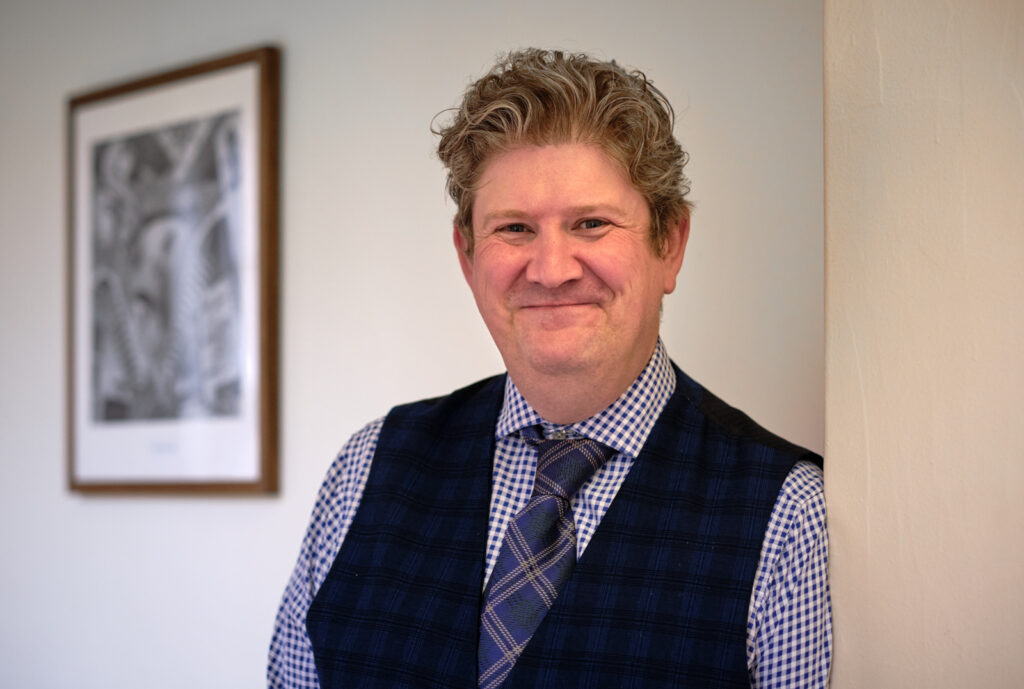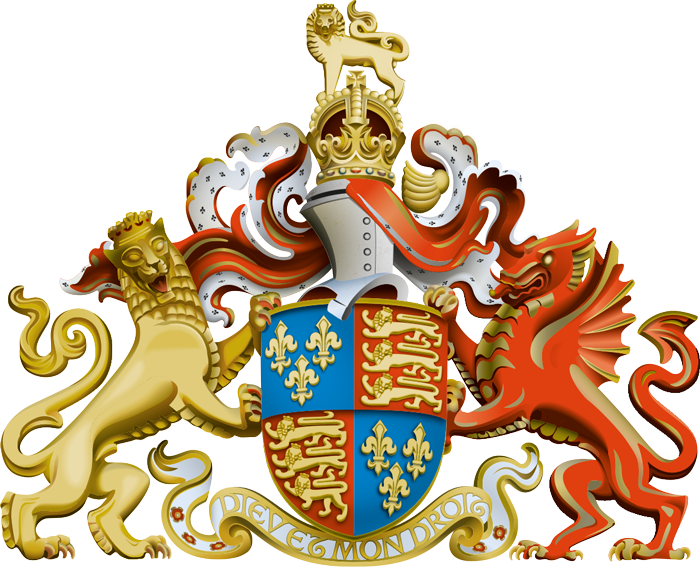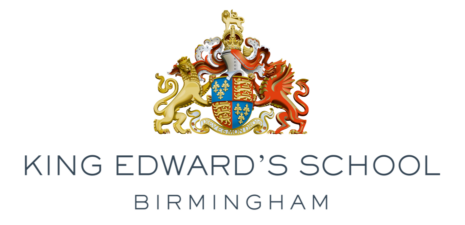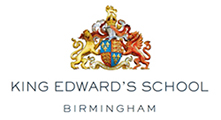Mathematics
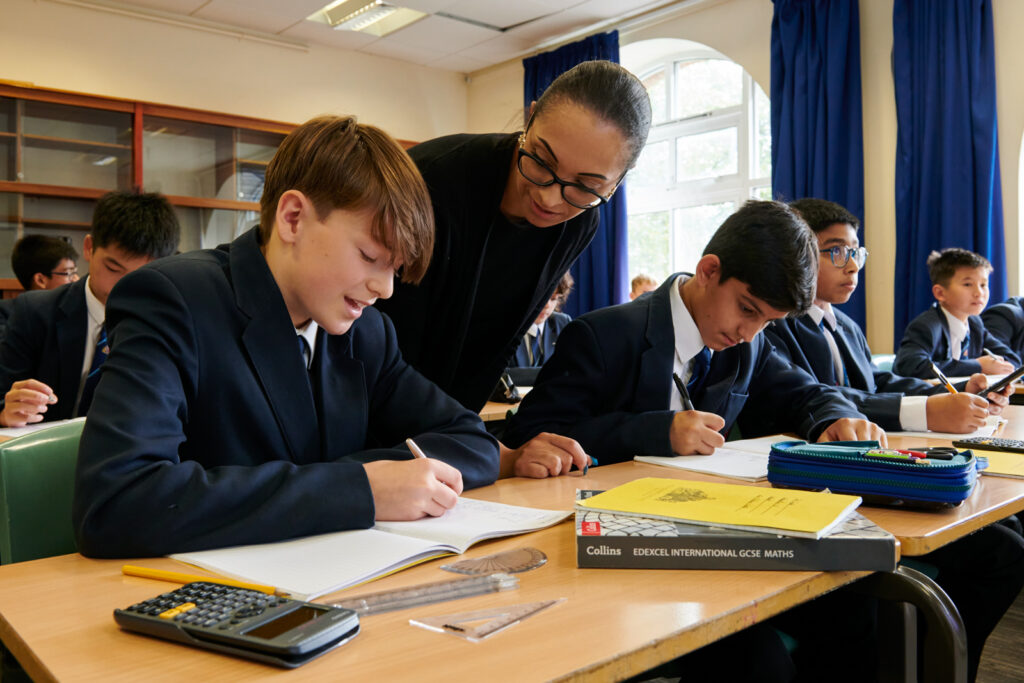
There is a great mathematical tradition at King Edward’s School and our most notable mathematician to date is Richard Borcherds, winner of the Fields Medal, the mathematical equivalent of the Nobel Prize.
Continuing that tradition, two teams of mathematicians have previously won the Senior Team Maths Challenge by gaining a perfect score in the National Finals and overcoming 1,000 school teams from across the UK along the way. Our pupils also regularly go on to thrive in university courses that demand and develop mathematicians at the highest levels.
As KES’s largest department, our programme is designed to give all pupils a strong foundation in Maths, nurturing both their understanding and their curiosity about how the world works. For those who share our passion for the subject, we also encourage them to pursue Maths at the highest level — including at top university courses. Last year, six pupils left KES to study Maths at leading institutions, with a further 15 going on to study Engineering.
In Year 7, students are taught Maths in their form group. They are lightly setted for Year 8, with increasing refinement on the levels of setting through Year 9, 10 and 11, as they work towards IGCSE Mathematics.
We have built our own bespoke syllabus in the Lower School, which aims to lay the foundations for the more intricate maths to come as well as develop skills of problem solving, persistence and using technology to support solutions that the later courses will value.
The Head of Lower School Maths is Miss Miszkurka.
All students enter for the Higher tier of IGCSE Maths (Edexcel) and their excellent results are a strong platform for future challenges. From Year 10, students in the top three sets also study AQA IGCSE Further Mathematics (Level 2) as an additional qualification, taught in an accelerated fashion. It is perfectly acceptable for students who are not in these top three sets to pursue maths at the highest levels thereafter, provided they demonstrate their commitment on a less direct path: all of our sets at IGCSE have ambitions towards the highest grades and the setting in Year 10 reflects what pace of learning Mathematics that the students have been most comfortable with.
The Head of Middle School Maths is Dr Mason.
Mathematics
Mathematics consists of a blend of Pure Mathematics, Mechanics and Statistics. Pure Mathematics is the core part of the course. It
involves a further study of the algebra, trigonometry and vectors begun in the lower school, and rewards confidence and accuracy in pupils’ algebraic skills. The
theory, techniques and methods learned in this part of the course develop Maths to be the language of problem solving, developing pupils’ ability to solve
abstract problems which are to be used elsewhere.
Most pure maths at this level is either Calculus or is in the service or future Calculus, whilst mathematical modelling of real situations is also developed.
Different in tone from IGCSE, this course increasingly rewards your understanding of the Maths above the ability to repeat mathematical algorithms.
Mechanics analyses simplified models of the physical world, particularly those associates with movement. The forces causing and affecting motion are considered and predictions about subsequent actions can be made.
Statistics studies methods of collecting, displaying and analysing data about the physical world. Skills acquired at GCSE are extended to deal with more
complex problems. The final assessment for A Level Mathematics consists
of three papers each lasting two hours. Two of the papers examine Pure Mathematics and the third paper is an applied paper of Mechanics and Statistics.
Further Mathematics
Further Maths is an additional A Level, which needs to be selected alongside A Level Maths. No university course is disappointed to see the study of Further
Maths, since the resilience, attention to detail and rigorousness that study of the subject to this level engenders will transfer to all programmes. The rigour, algebraic depth & development of Mathematical and modelling techniques (mostly with respect to Calculus) are also highly valued by many courses and careers.
The Head of Senior School Maths is Pearson.
All students continue to study mathematics as part of the IB Diploma, choosing one of the three principal maths courses.
Higher Level Analysis & Approaches is a rigorous, stimulating and challenging problem-solving course, which is designed to meet the needs of those who intend to pursue careers in the sciences, mathematics, economics, computation, engineering and technology.
Higher Level Applications & Interpretations is as mathematically sophisticated, but focuses more on how maths is used, and is designed for students whose later pursuit of the subject will be focused more on using maths, rather than deriving it.
For all of those not taking Higher Level Maths, Standard Level Applications & Interpretations is a detailed course for those without a preference for mathematics along with those whose future plans do not specifically require knowledge of areas of maths, keeping the maths from GCSE in play. It develops skills for using the maths students have learned so far in various real world situations, both practical and academic, adding in some more content to deepen their understanding.
On Friday afternoons, for the most keen and able mathematicians, we run a supplementary Further Mathematics Higher Level course that runs till after school. This is aimed at those with plans to study maths in the future, as well as those with inclinations towards natural sciences, physics or engineering at the very top universities, allowing them to play with more of the subject, as well as prepare for the many university tests that may arise.
The Head of IB Maths is Mr Pearson.
Future careers
There are few, if any, university courses or employers who are displeased to see that a student has studied mathematics to advanced levels. Courses that reward students with the capacity to master a playbook and then use those skills to solve various problems (practical or theoretical), are increasingly valued in the modern world. The greatest single employer of mathematicians remains GCHQ, but study of maths closes no doors and, if you enjoy the subject, we encourage you to pursue it as far as you can.
Beyond the classroom
Most students sit one of the annual Maths Challenge papers each year, with many qualifying for the ensuing Olympiads. Dr Mason works with students who show interest and aptitude for such challenges and works with them outside of lessons in various forms, based on age.
These events also link with various external challenges and qualifications, from the exciting Ritangle Challenge through to STEP preparation, whilst last year two KES pupils won the National Cypher Challenge with the University of Southampton. Regular trips to mathematical events run, whilst in recent years we have had top mathematicians visit to give lectures on the exciting bits of maths that run beyond the syllabuses.
Meet the Head of Faculty
Mr Shepherd
Mr Shepherd has been a Head of Maths for 17 years at the International School of Milan, Kings’ Chester, and King Edward’s School since 2014. He has also taught at King Edward VI Five Ways and Bradford Grammar School. Mr Shepherd has spent a lot of time in education, having studied Maths and Statistics at St Andrews, growing up in a family of teachers, and even marrying a Classics teacher. However, he has never worked in a better school or with a better department. Maths at KES is challenging, exciting, and of crucial importance to preparing boys for the years ahead, and seeing them lean into their geekier roots counts amongst the department’s greatest pleasures.
Mr Shepherd runs the Schools’ Challenge at the school (National Runners up two years running) and, as a huge film nerd, offers occasional pearls of wisdom to the boys who cheerfully run the Visual Media Society. He enjoys writing about cinema (with occasional articles in Film Stories’ magazine and website) and, if not at the pictures, he’ll be listening to film scores, or playing them on his violin with The Film Orchestra.
